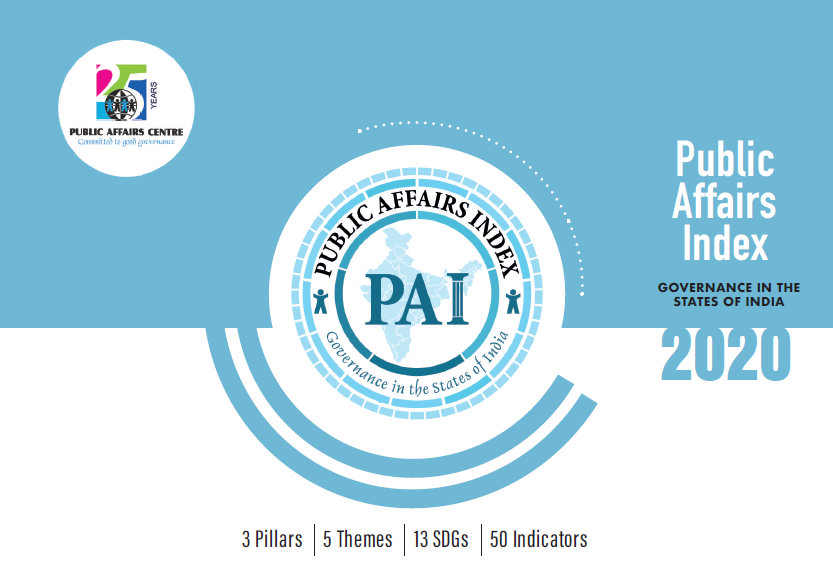
Reports
Public Affairs Index (PAI) 2020
PAI 2020 provides evidence-based insights on subnational governance, and in particular, drawing on government data, an assessment of the quality and adequacy of governance in the states. Two new dimensions on measuring governance have been introduced in this edition and will be of interest to the readers: first, the Delta Analysis that provides a separate pillar-level ranking of states on their recent performance (average five-year period 2015- 20), and presents interesting results and rather different rankings of states when assessed without the weight of legacy data and second, an overview of the disparities between the states that highlight the differing patterns of inequality across India and raises the question of why the poverty reducing impact of growth in some states has been more in other similarly placed states. Both these must give us pause and compel us to reflect on the economic and social transition that is underway in India and what its implications for future development praxis might be.
There is no apriori reason to suppose that PAI 2020 presents which is new, comprehensive or interesting. But those readers who take a deep dive into it will find just rewards. What it does present is an evidence-based assessment of human development and governance across the states in India. PAI 2020 will have served its purpose if it draws attention to the reality that is India, or even an approximation of it and therefore not to be set aside lightly. It will be better still, if the state governments are able to draw actionable insights from it, enabling them to do better in the years ahead. This will likely hasten the process of development convergence that is discernible. It is with this sense of humility and optimism, that the Public Affairs Centre presents the Public Affairs Index 2020.
Download the full report below!

